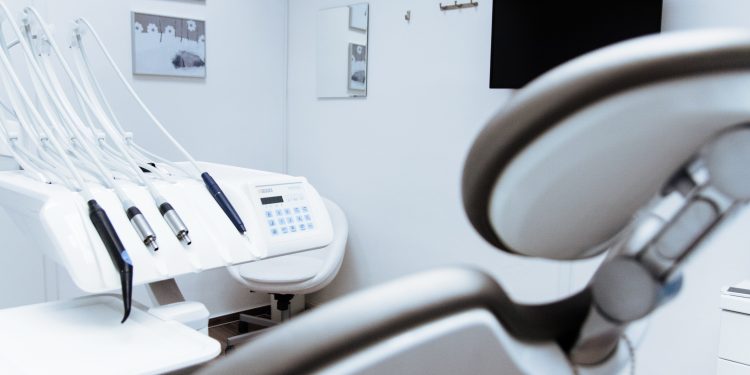A report by Better Tennessee highlighted that a significant majority of Tennesseans understand the importance of oral health. Around 95% agree that regular dental visits are crucial for maintaining good health, and 90% believe that having straight, bright teeth can contribute positively to one’s life. However, the report also pointed out a deficiency in the number of dentists serving patients in Tennessee.
Teeth are made up of tissues and have several blood vessels and nerves attached to them through the gums. They have a connection with many other organs of the body. Therefore, any problem with the teeth, jaw, or gums should not be ignored. It is essential to get medical attention for any discomfort and pain in or around the mouth.
While some teeth issues do provide you with enough time to book a consultation and visit whenever it is convenient, other problems can quickly turn into emergencies and may require you to seek immediate dental care. In an emergency situation, nearby dental clinics can play an important role in helping or saving a patient by reducing the commute time. You can look up the best dental clinics in your city through online resources to quickly reach the clinic. Reasons like trauma, accident, or infection can cause a dental emergency. In this article, we’ll discuss a few dental emergencies that require immediate care from a dental professional.
Table of Contents
1. Impaired Braces
Braces are worn for cosmetic and orthodontic reasons. They can help fix crooked teeth, align jawbones, fix over or under bites, treat functional oral problems, and give you a more beautiful smile.
Sometimes, braces can get damaged due to improper fitting, loose wires, broken brackets, or other conditions. In any case, impaired braces are considered a dental emergency and require quick care.
If you live in or around Hendersonville city, you can look up the best orthodontics in Hendersonville to find and reach a dentist without wasting a minute. An experienced orthodontist can easily identify the problem and design the right course of treatment for you.
If not treated, leaving damaged braces in the mouth for an extended period can cause extreme discomfort, swelling of the gums, difficulty in eating, infection, and several other problems.
2. Extruded Tooth
An extruded tooth is a partially loose or unhinged tooth. Even though our teeth become loose with age, it is not normal to have a dislocated tooth in a young and healthy adult. It can be caused by overcrowding of the teeth, gum disease, underlying medical conditions, or another problem.
The best course of action in such a situation is to consult a dentist, who’ll assess your situation and devise a personalized treatment plan. Sometimes, extruded teeth can be stabilized and readjusted back into their original position. However, sometimes, they may require additional procedures, medicine, or even surgery.
3. Painful Bite
In simple terms, a painful bite refers to the pain felt when biting down on any edible. The cause of this pain can be something as simple as a cracked tooth or as serious as TMJ or Temporomandibular joint disorder. Other reasons can include misaligned teeth, broken filling, or mild gum disease.
If the pain lasts for more than a few days, it is crucial to consult a dentist. Based on the cause, the dentist may recommend silent therapy, gum disease treatment, or root canal therapy. In case of a misaligned bite or TMJ disorder, surgery is often the most probable treatment option.
On rare occasions, painful bites can also be caused by problems in other organs of the body, especially an ear or sinus infection. An efficient orthodontist will be able to identify the underlying cause with further testing or consultation with other healthcare experts.
4. Bleeding Gums
Bleeding gums are a common ailment. Many people experience them from time to time while brushing throughout their lives. According to the NIH, almost 90% of the population experiences it.
Still, in some cases, gum bleeding can be serious and should be treated as an emergency. For example, excessive bleeding that is not stopping, bleeding gums along with fever, or after a dental procedure can be signs of something serious.
In some cases, medication is enough, but sometimes emergency surgery may be required to stop the loss of blood. Only a dentist can identify and assist you with the right course of action.
Often, underlying medical problems, like Leukemia, may also lead to bleeding gums. In such cases, treatment should be managed carefully and treated by several medical and dental professionals working together.
5. Soft Tissue Injury
Gums, cheeks, tongue, and lips are all examples of soft tissues. Mild injuries like a cut are nothing to be worried about. However, any severe injury to these soft tissues requires medical attention.
Severe injuries can include burns, avulsions, lacerations, and more. These injuries can be a result of an underlying medical condition like diabetes, accident, assault, or a dental procedure.
The first step in the treatment of a soft tissue injury is to disinfect the wound and stitch it up. After that, painkillers may be prescribed based on the patient’s condition. In extreme injuries, immediate surgery may also be required.
6. Swollen Jaw or Face
A swollen jaw can be caused by trauma, infected gums, or even salivary gland infection. A number of conditions can cause facial swelling too. However, it is better to rule out any dental emergencies before consulting any other specialist. Therefore, it is important to seek immediate dental care for a swollen jaw, especially if it is unexplainable.
Based on the sustained damage (in case of trauma) and the cause of the problem, a dentist can recommend different suitable treatment options. For example, antibiotics may treat salivary gland-related swelling and trauma-induced swelling may be treated by pain-relieving medicine and rest.
Some doctors may even recommend home treatments like eating soft foods, staying hydrated, maintaining oral hygiene, and relaxing. However, prolonged swelling may require medication or even surgery.
Conclusion
Teeth are a vital organ that helps in the essential function of eating and also provides aesthetic value. Therefore, it is crucial to keep them clean and get them checked regularly. Small dental problems can arise from time to time and are often treated by non-invasive procedures and medication. However, some problems like prolonged toothache, excessively bleeding gums, dislocated teeth, painful bites, or swollen gums require immediate dental attention.


 Home
Home









